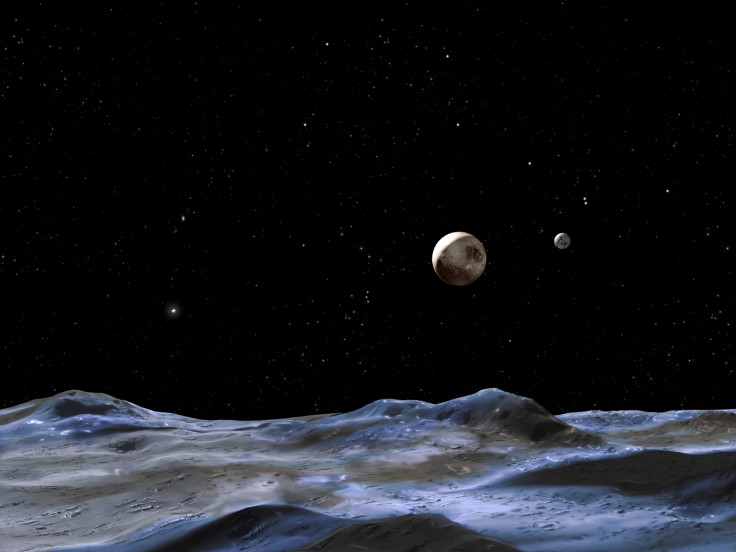Pluto Planet Debate: "It's All Just Semantics Anyway"

If people want to call Pluto the ninth planet in the solar system then they can, as it is just a case of semantics anyway, an astronomer has claimed.
Recently, there have been renewed calls to reinstate Pluto as a planet. It was demoted to minor planet, or dwarf planet, status in 2006, completely rewriting textbooks and encyclopaedias since its discovery in 1930.
Currently, there are three criteria for a planet to be defined as such: it must orbit around the sun; must be round or nearly round; and must be gravitationally dominant in its area. Pluto did not meet the latter point and was demoted as a result.
However, the Harvard-Smithsonian Centre recently ran a poll to find out if people wanted Pluto to be a planet again and the response was overwhelmingly yes.
But this, said Mark Bailey, director of the Armagh Observatory in Northern Ireland, is not the bigger debate.
"If you want to think of Pluto as the ninth planet then please do," he told IBTimes UK. "But in the end it's only a way of remembering that there is a significant object [in that part of the solar system] and, if you like, the tip of the iceberg of many objects out there."

Bailey said part of the problem with Pluto and its planetary status was its past.
"Pluto, historically, has been written into encyclopaedias and textbooks as the ninth planet, so it was a great shock to the system to have it stripped of that right, as it were. Since then, there's been a lot of people trying to argue for it to come back," he said.
"People are attached to the name Pluto as a planet and the idea that it was historically a planet."
However, the problem is wider than this and can be seen as a case of "the more you learn the less you know".
When first discovered in 1930, people thought Pluto was a new planet. Located in a "very complex region" of the solar system, astronomers have now found thousands of objects circulating the area – so where is the line drawn between planet and object? And does it really matter?
"Pluto and the other objects in stable orbits are long-term members [of the solar system] and so the question is how you define a planet. If an object is one of many and it's a very small object it has some gravitational influence, it's got moons and all the rest of it, then it's probably not hugely sensible to call it a planet in the same sense as a terrestrial planet like Earth or Venus," Bailey said.
"There are huge overlaps in properties of these objects and to some degree my attitude to this is it's not a huge issue. It's a matter of debate. Definition is a very difficult thing to do, it's almost like defining when a human becomes an adult from a child."

Bailey said trying to distinguish Pluto and its associated objects becomes a question of semantics.
"If you're going to be pedantic and say Pluto is a planet, then the word 'planet' ceases to convey much of a meaning because it is inclusive not just of all the exoplanets that we know circulate other stars, but also right the way down to ice, rock objects like Pluto and those smaller than Pluto," he said.
"If the word's going to be useful it should convey a certainty of meaning.
"If you want to describe it as the ninth planet, then that's fine. But what about all the others? You then have to say 'well we're not going to include them', or 'we're going to include them', in which case you have to say where the limit is."
Bailey said astronomers and scientists were working to find out the properties of objects, which, after extensive research, could one day be grouped together.
However, he said it is best not to get too bogged down in worrying about definitions and focus on getting the wider understanding of the solar system and planetary systems in general.
"The more we learn, the more distinctions we find between things and then we find two things we thought were totally different have a common trait," Bailey said.
"The mere fact is that we haven't encountered enough objects yet to explore the whole of the continuum of planetary, asteroidal or cometary properties.
"When people have had a chance to digest all of this information that's flowing, from spacecrafts and ground-based observatories, eventually all this information will look very different to how historically we have looked at these things. But that's what you call scientific progress."
© Copyright IBTimes 2025. All rights reserved.






















